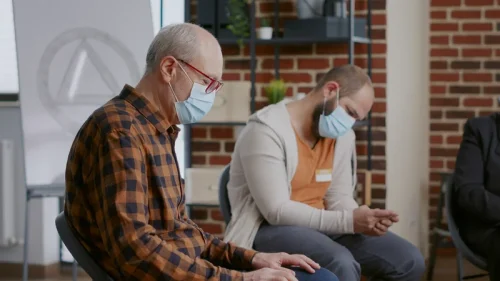And if cocktails make you sneeze, try making your own with fresh fruit juices instead of pre-made mixes. Those with a genuine alcohol allergy should completely avoid alcohol. However, it's important to note that individual alcohol tolerance and dietary habits vary. As such, the results of these studies may not be universally conclusive. Quercitin, in particular, is a potent antioxidant that may effectively remove free radicals that exert oxidative stress (which can cause cell damage) on the brain. As red wine is an alcoholic beverage, more studies are still needed to assess the benefits versus risks of red wine on brain health and overall function.
- Combining alcohol with certain medications also can cause reactions.
- Alcohol allergy symptoms can range from mild, such as an itchy mouth or eyes, to severe, including vomiting or anaphylaxis.
- At present, there is no cure for a genuine alcohol allergy.
- But experts do know that nonallergic rhinitis happens when blood vessels in the nose expand.
Top doctors in ,
If you’re frequently sneezing after drinking, you must see a doctor as there may be an underlying condition that needs to be treated. If drinking from a glass makes you sneeze, try drinking through a straw instead. This will help reduce your nose’s contact with the drink and make it less likely to trigger a sneeze. This dilation occurs first in the brain, so you may feel flushed or warm after only a few sips of alcohol.
Why do I keep sneezing?
Some people have an intolerance or sensitivity to sulfites. These compounds are often added to beer and wine to limit the growth of yeast and act as a preservative. Common sulfites include potassium bisulfite or potassium metabisulfite. Sulfur dioxide is another closely related chemical that can trigger reactions in some people.
Can the temperature of the alcohol affect sneezing?
People with aspirin-exacerbated respiratory disease (AERD) are also more likely to have alcohol intolerance. Those who notice an increase in their asthma symptoms after drinking alcoholic beverages, especially wine, might be reacting to potassium metabisulfite, a common preservative. As with why do i sneeze when i drink alcohols, this issue comes down to a depletion of enzymes — in this case, enzymes that are required to metabolize alcohol in the liver. The doctor may refer the person to an allergy specialist for further testing and treatment. Anaphylaxis is a life threatening condition that involves a series of symptoms, such as a rash, low pulse, and shock. When it comes to how alcohol impacts asthma, the conclusions are less set-in stone.
Like mentioned earlier, experiencing nasal congestion can make this symptom even more noticeable and painful. Here are some of the most common alcohol intolerance symptoms. However, not everyone experiences them all, or in equal severity.
Thinking of Stopping Drinking? 9 Tips to Succeed
- Another common symptom of alcohol intolerance is experiencing headaches or migraines (in more severe cases).
- For more information if drinking red wine in moderation is OK to do, it's a good idea to contact your healthcare provider for personalized advice.
- Those with existing heart conditions will also need to be careful before you drink alcohol in case alcohol intolerance could exacerbate their pre-existing conditions.
- Some people with Hodgkin’s lymphoma experience pain after drinking alcohol.
- Quercitin, in particular, is a potent antioxidant that may effectively remove free radicals that exert oxidative stress (which can cause cell damage) on the brain.
That’s because beer contains histamine, produced during fermentation (yeast converts sugars to alcohol). Since the main ingredient in beer is barley, you will have to avoid beer on a gluten-free diet or stick with gluten-free beer. While alcohol content does not directly cause sneezing, it can contribute to nasal congestion or irritation, potentially triggering sneezing in some individuals. Oral decongestants are not usually used unless nasal antihistamines and nasal glucocorticoids haven't worked for you. Oral decongestants can help with stuffiness but they have side effects such as increased blood pressure, nervousness, and difficulty sleeping.
"For some people with sensitive airways, such as asthmatics, consuming sulphites in alcohol may cause wheezing," she explains. People with alcohol intolerance react quickly to consuming alcohol. Two common symptoms are facial flushing, in which the skin on the face quickly turns red, and nasal congestion. For those who do not currently drink alcohol, starting to drink red wine solely for its potential heart benefits is not recommended, despite its antioxidant properties. A recent study on men with diabetes revealed that moderate consumption of red wine (as part of a Mediterranean diet) might temporarily reduce blood pressure in some people.
- You might also react to certain alcoholic beverages if you have a histamine or sulfites intolerance.
- Although the main ingredient in beer is water, there are many other ingredients.
- If your favourite tipple leaves your cheeks burning, then yes – you may well have an alcohol sensitivity or intolerance, says nutritionist Jade Taylor, of Kitchen Home.
- Your symptoms can also be due to an interaction between beer or alcohol and any medication you’re taking.
- If you’re allergic to alcohol, you may experience hives, itching, swelling, difficulty breathing, and wheezing.
We welcome anyone who wishes to join in by asking for support, sharing our experiences and stories, or just encouraging someone who is trying to quit. Please post only when sober; you're welcome to read in the meanwhile. Food intolerances are far more common than food sneezing after drinking alcohol allergies, affecting up to 20% of people worldwide. Food intolerance occurs when your digestive system has a hard time with a particular food. With intolerance or sensitivity, your digestive system gets irritated by certain foods or has trouble digesting them.





